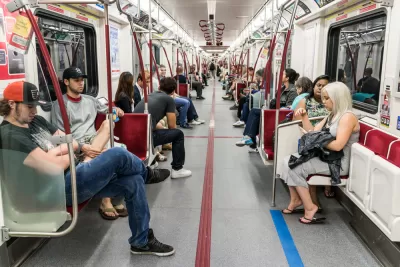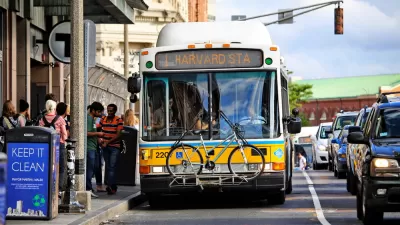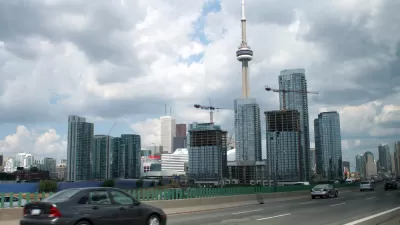The population in Canada will increase substantially in the future, and transit planning is crucial to ensuring that cities thrive.

Canada’s population is slated to grow in the coming decades, with one projection estimating 48.8 million to 56 million Canadians by 2050. These residents are largely going to live in the country’s big cities, which means many more commuters. But are Canadian cities going to be ready for this growth?
"If we want to raise the quality of life in Canada’s cities, rather than choking on our growth, we will need better planning, so that cities build up more and sprawl out less. As part of that, we need a lot more of the key piece of infrastructure that makes city life possible: mass transit," argues an editorial in The Globe and Mail.
In the Greater Toronto Area alone, the addition of 4.6 million new residents is projected by 2046. "Try to imagine millions of new commuters, all trying to drive to work on the GTA’s already gridlocked highways. It can’t be done."
Canadian cities have not made the transit investments and improvements needed to accommodate this coming surge in the population, as aging and inadequate systems can barely keep up with present-day needs. "Unless municipalities, provinces and the federal government prepare for our nation’s future as a bigger and more urban country, by planning, funding and actually building public transit, and a lot more of it, the quality of life in Canada’s big cities is at risk."
FULL STORY: Canada’s cities are about to add millions of new residents. They can’t all drive to work

Planetizen Federal Action Tracker
A weekly monitor of how Trump’s orders and actions are impacting planners and planning in America.

Maui's Vacation Rental Debate Turns Ugly
Verbal attacks, misinformation campaigns and fistfights plague a high-stakes debate to convert thousands of vacation rentals into long-term housing.

San Francisco Suspends Traffic Calming Amidst Record Deaths
Citing “a challenging fiscal landscape,” the city will cease the program on the heels of 42 traffic deaths, including 24 pedestrians.

Amtrak Rolls Out New Orleans to Alabama “Mardi Gras” Train
The new service will operate morning and evening departures between Mobile and New Orleans.

The Subversive Car-Free Guide to Trump's Great American Road Trip
Car-free ways to access Chicagoland’s best tourist attractions.

San Antonio and Austin are Fusing Into one Massive Megaregion
The region spanning the two central Texas cities is growing fast, posing challenges for local infrastructure and water supplies.
Urban Design for Planners 1: Software Tools
This six-course series explores essential urban design concepts using open source software and equips planners with the tools they need to participate fully in the urban design process.
Planning for Universal Design
Learn the tools for implementing Universal Design in planning regulations.
Heyer Gruel & Associates PA
JM Goldson LLC
Custer County Colorado
City of Camden Redevelopment Agency
City of Astoria
Transportation Research & Education Center (TREC) at Portland State University
Jefferson Parish Government
Camden Redevelopment Agency
City of Claremont





























